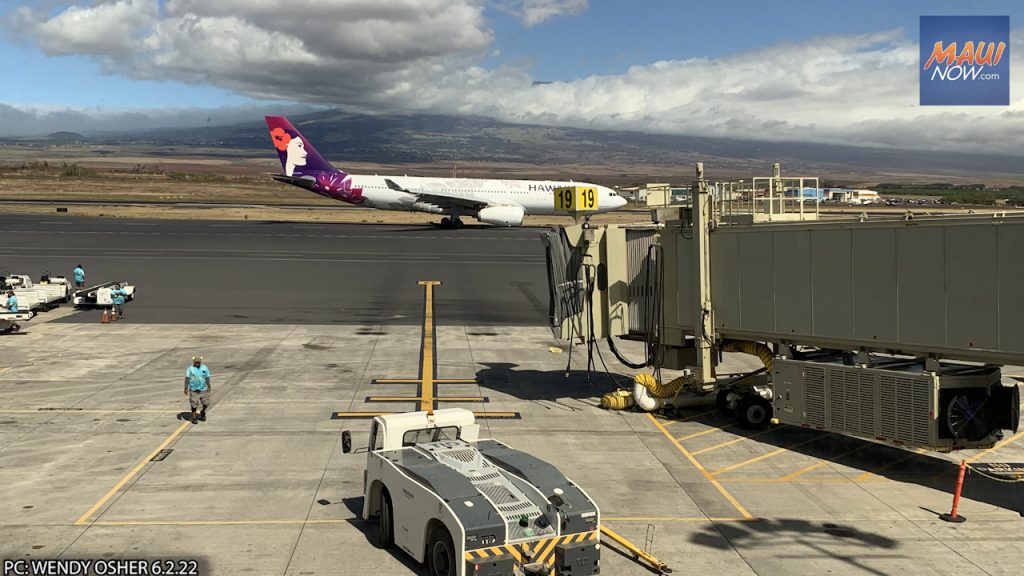Hawaiian Airlines and Par Hawaii explore sustainable aviation fuels in Hawaiʻi

Hawaiian Airlines and Par Hawaii, announced plans today to join forces to study the commercial viability of locally produced sustainable aviation fuels, to replace all or a percentage of traditional kerosene-based jet fuel with fuel that is made with sustainable feedstocks.
Hawaiian Airlines is the state’s largest and longest-serving air carrier, and Par Hawaii is an affiliate of Par Pacific Holdings, Inc. that is Hawai‘i’s largest supplier of energy products.
A joint announcement by the companies called the efforts a “major step” in reducing carbon emissions, to address climate change, and to create a more sustainable energy future for Hawai‘i.
Based on a memorandum of understanding signed by both companies, Hawaiian Airlines and Par Hawaii will jointly evaluate the potential to convert two of the processing units at Par’s Kapolei refinery to produce renewable fuels, including sustainable aviation fuel; explore the production of locally grown, oil-yielding crops; study the feasibility of importing sustainable feedstocks to produce sustainable aviation fuel and other renewable products; and convene stakeholders to continue to support and identify federal and state policies and programs that accelerate Hawai‘i-based production of renewable fuels.
“We have over 260 employees at our Kapolei refinery engaged in high quality manufacturing work,” said William Pate, president and CEO of Par Pacific in a joint news release. “We’re excited to be partnering with Hawaiian Airlines to innovate and position our business for the future. Aviation fuel represents approximately 40% of Hawai‘i’s fuel demand, and our work with Hawaiian is an important step in addressing these emissions.”
“This is the first step in what we hope will be a long and productive relationship that reflects both parties’ unwavering commitment to the environment and to these islands we call home,” said Peter Ingram, president and CEO of Hawaiian Airlines. “SAF is an integral part of decarbonizing aviation, and we hope to be able to make joint investments in SAF production here in Hawai‘i, which will benefit both the environment and our economy.”
Ingram said, “We know that it will take more than just our companies to accomplish this ambitious objective, and we look forward to engaging with partners across the community to build a more sustainable future for travel to, from and within the islands.”
In 2019, Par Pacific invested $27 million in a distillate hydrotreater at its Kapolei refinery to produce more jet fuel and ultra-low sulfur diesel. This relatively new processing unit, along with the refinery’s distillate hydrocracker – which produces high-value transportation fuels by converting heavier, lower-value products under high temperature and pressure – are the two primary units being considered for renewable fuels production.
“We believe we’re headed in the right direction by collaborating with Hawaiian Airlines to explore the shift from petroleum to biofuels at our Par Hawaii refinery,” said Eric Wright, president of Par Hawaii.









